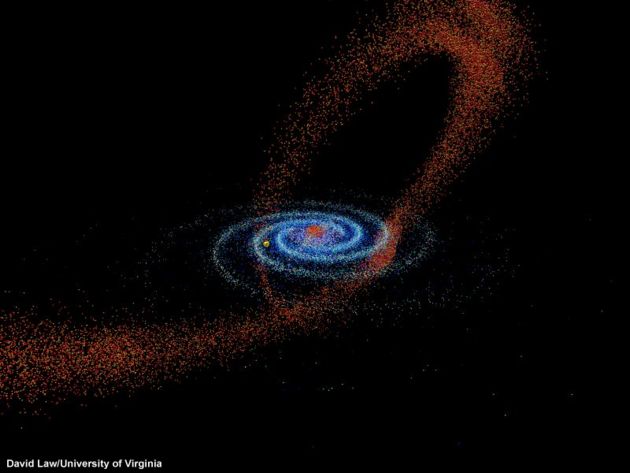A very long time ago Andromeda could not have exploded, all galaxies began to form at around
the same time everywhere. We need to give Andromeda and all galxies time to form first.
So a very, very long time ago, Andromeda and all the galaxies started to form.
Then, a very long time ago, they all appeared to be where and how they look today.
Sometime between the two epochs above, the universe decided inexplicably and against all
known laws of the time, to constatly accelerate its expansion.
If for some reason the universe decided (illegally to current knowledge) to make strangelet
mega centers out of galactic cores, explode
them harmfully, or vanish them inexplicably 24,999 years ago, we would not know it...yet.
The first ones to find out, unfortunately, could be earth, if things do happen quite homogeneously
and simultaneously throughout the universe, because of the time delay being the smallest within the
Milky Way.




